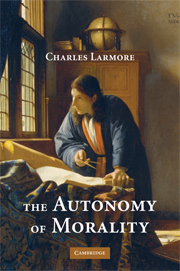Book contents
7 - The Meanings of Political Freedom
Published online by Cambridge University Press: 05 June 2012
Summary
“Give me liberty or give me death!” cried Patrick Henry. “Live free or die” declare the license plates of the state of New Hampshire. Plainly, people care a lot about freedom. It has indeed been one of the cardinal ideals of modern political thought, and not only in America. Yet what political freedom means and why it should matter are far from clear. Freedom seems to be an essentially contested concept.
In this chapter, I focus on a conception of political freedom that has recently undergone a notable revival, having its roots in what is known as the “classical republican tradition.” My aim is to explain its meaning and assumptions, and to show why it has proven to be so attractive a conception. But I shall not claim that it constitutes the correct account of political liberty, nor shall I reject it in the name of some alternative theory. For one of the points I want most to establish is that it is a mistake to suppose that any one conception can rightly be said to capture the true essence of individual freedom. That is because freedom is a value that we can understand only by reference to other values, and depending on what other human goods we place at the center of our attention, we will arrive at different understandings of what freedom means and why we should care about it.
- Type
- Chapter
- Information
- The Autonomy of Morality , pp. 168 - 195Publisher: Cambridge University PressPrint publication year: 2008
References
- 1
- Cited by

